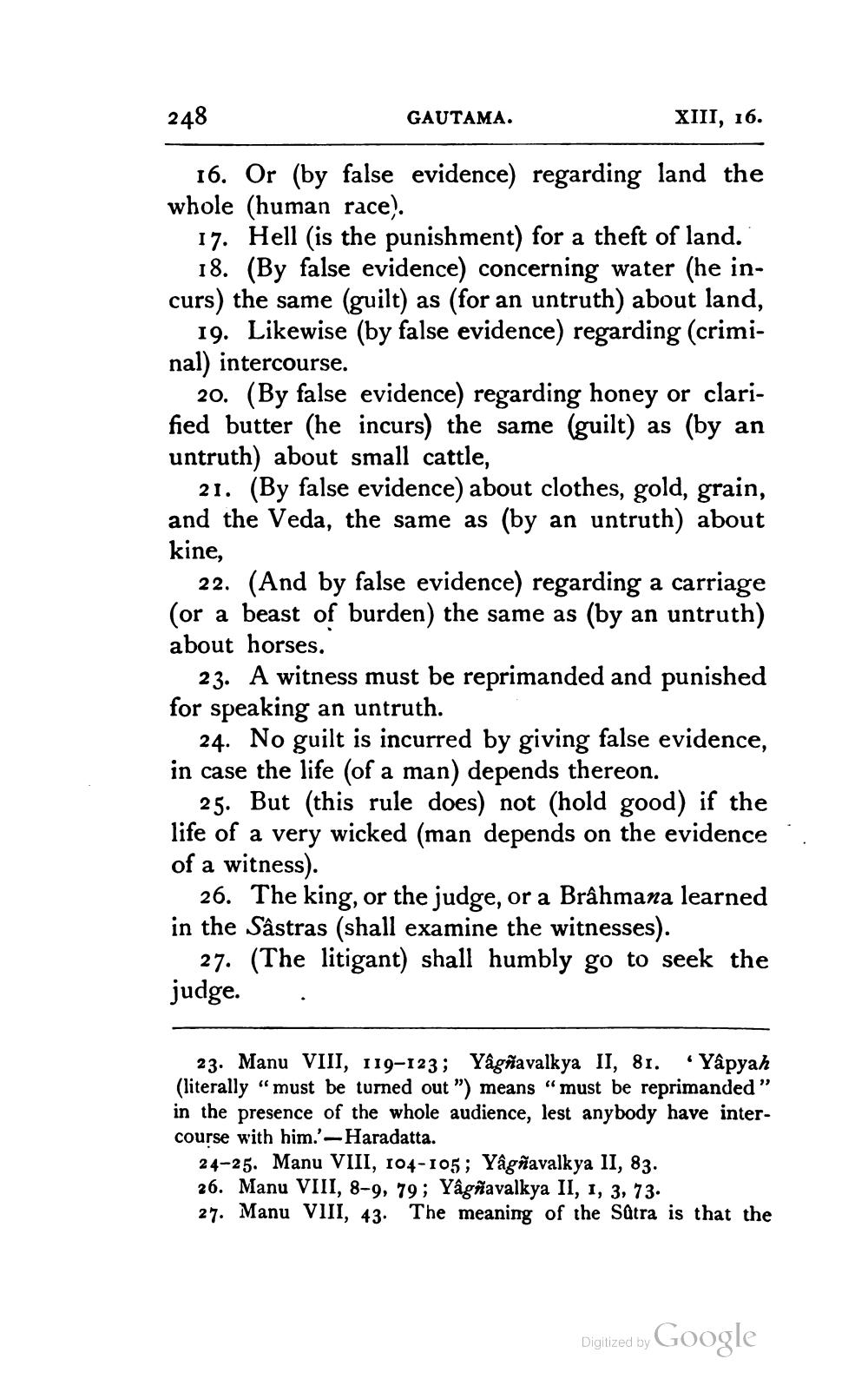________________
248
16. Or (by false evidence) regarding land the whole (human race).
GAUTAMA.
XIII, 16.
17. Hell (is the punishment) for a theft of land. 18. (By false evidence) concerning water (he incurs) the same (guilt) as (for an untruth) about land, 19. Likewise (by false evidence) regarding (criminal) intercourse.
20. (By false evidence) regarding honey or clarified butter (he incurs) the same (guilt) as (by an untruth) about small cattle,
21. (By false evidence) about clothes, gold, grain, and the Veda, the same as (by an untruth) about kine,
22. (And by false evidence) regarding a carriage (or a beast of burden) the same as (by an untruth) about horses.
23. A witness must be reprimanded and punished for speaking an untruth.
24. No guilt is incurred by giving false evidence, in case the life (of a man) depends thereon.
25. But (this rule does) not (hold good) if the life of a very wicked (man depends on the evidence of a witness).
26. The king, or the judge, or a Brâhmana learned in the Sâstras (shall examine the witnesses).
27. (The litigant) shall humbly go to seek the judge.
23. Manu VIII, 119-123; Yâgñavalkya II, 81. Yâpyah (literally "must be turned out ") means "must be reprimanded" in the presence of the whole audience, lest anybody have intercourse with him.'-Haradatta.
"
24-25. Manu VIII, 104-105; Yâgñavalkya II, 83. 26. Manu VIII, 8-9, 79; Yâgnavalkya II, 1, 3, 73.
27. Manu VIII, 43. The meaning of the Sutra is that the
Digitized by
Google




